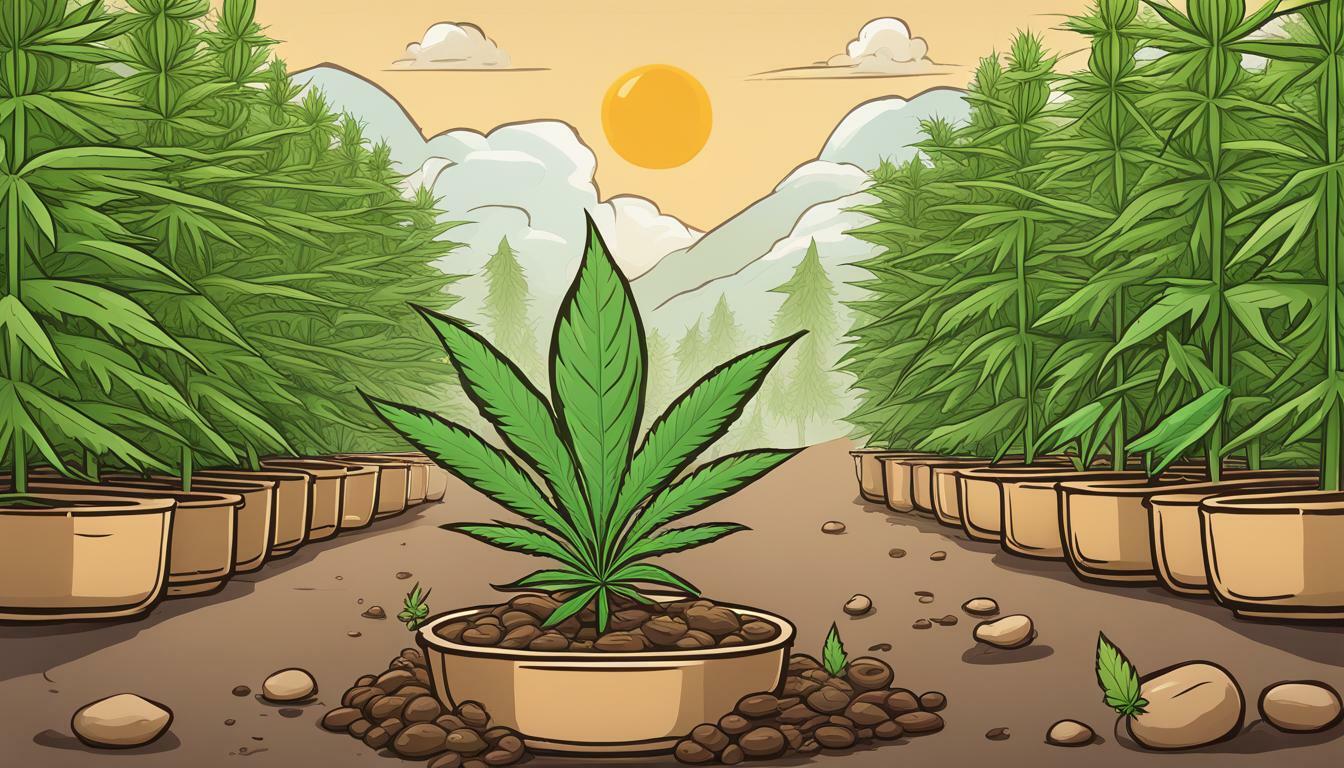
Cannabis and Wearable Tech: Monitoring Consumption and Effects in Real-Time
In today’s society, the responsible use of cannabis is becoming increasingly important. With the recent legalization of cannabis in many

As the cannabis industry blossoms into a thriving market, it faces unique challenges in addressing the waste generated throughout the cultivation, production, and distribution process. Responsible waste management is not just a matter of compliance or a check on the sustainability checklist—it’s an integral part of a forward-thinking approach that promotes environmental stewardship, economic growth, and brand value.
In the following discussion, we will illuminate the vital role responsible waste management holds within the cannabis industry, reveal its extensive advantages, and examine the ways it empowers businesses to remain at the forefront of an ever-changing sector.
As cannabis cultivation and production become more widespread, the industry must address the environmental impacts associated with waste generation. Cannabis waste can include plant material, packaging, and hazardous materials such as pesticides or solvents used in processing. Proper disposal of these materials is essential to prevent soil and water contamination, air pollution, and threats to local ecosystems.
Implementing eco-friendly waste management practices, such as composting organic waste or recycling packaging materials, can significantly reduce the industry’s carbon footprint. Moreover, these practices can help cannabis businesses adhere to local regulations and guidelines, ensuring the environment remains protected for future generations. Additionally, sustainable water and energy management techniques can further minimize the industry’s impact on natural resources.
Investing in responsible waste management practices can result in significant cost savings and increased operational efficiency for cannabis businesses. By reducing waste, companies can minimize the expenses associated with waste disposal services, which often charge by weight or volume. Furthermore, recycling and repurposing waste materials can generate additional revenue streams by creating new products or materials.
Implementing waste reduction strategies, such as inventory management systems, lean production techniques, or resource recovery initiatives, can also streamline operations and minimize wasted resources. This increased efficiency can lead to cost savings and a competitive edge in the marketplace. Embracing these practices will ensure businesses remain agile and adaptable in an ever-evolving industry landscape.
In today’s environmentally conscious society, consumers increasingly expect businesses to demonstrate a commitment to sustainability. By implementing responsible waste management practices, cannabis companies can build a positive brand image and foster loyalty among customers who value eco-friendly businesses.
Transparent communication about waste management initiatives and their benefits can help companies differentiate themselves in a competitive market. Showcasing these efforts on websites, social media, and packaging can attract environmentally conscious consumers and reinforce the message that the cannabis industry is committed to sustainability. By aligning with consumer values, cannabis companies can foster long-term relationships and drive brand loyalty.
The rapid growth of the cannabis industry brings with it the responsibility to manage waste effectively and minimize the environmental impact. By embracing responsible waste management practices, cannabis businesses can reduce their environmental footprint, achieve cost savings and operational efficiency, and build a positive brand image.
In turn, these efforts will help the industry continue to thrive while protecting the planet for future generations. As the cannabis industry continues to evolve, those who prioritize sustainability and responsible practices will stand out, ensuring long-lasting success in this competitive market.

In today’s society, the responsible use of cannabis is becoming increasingly important. With the recent legalization of cannabis in many

As the cannabis industry continues to grow and evolve, new technologies are emerging to enhance the shopping and education experience.

The cannabis industry is booming, with legal and medical cannabis becoming more widely accepted and available. However, concerns over product